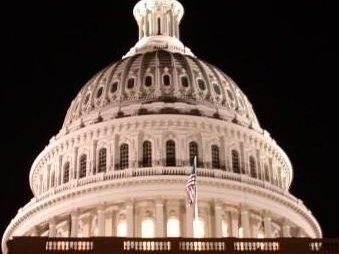The FCC takes center stage in this week's round-up covering news related to telecoms and government agencies, including a ruling that could affect LTE backhaul:
Former lawmaker laments FCC-related votes
The 1996 Telecommunications Act has been instrumental in shaping the scope of today's broadband and wireless network infrastructure. According to The Hill, former Rep. Jack Fields – who acted as chairman of the Energy and Commerce subcommittee on Telecommunications and Finance at the time – has expressed regret that members of Congress gave the FCC so much leeway in making unilateral decisions on the matter.
"We gave the [FCC] too much latitude and too much flexibility," Fields said at a recent event on Capitol Hill, according to the source. "I think we should've been much more prescriptive in terms of legislative intent."
FCC gets Lifeline database off the ground
Phone communications have long been a vital component of society, but those needs have become much more complex with the widespread adoption of mobile. Smartphones have usurped traditional landlines and even basic cellphones as the standard for voice communications. This shift has forced the U.S. government to reconsider some its programs, including Lifeline.
Lifeline was initially launched by the FCC in 1985 to enable affordable phone services for low-income consumers. The agency has had to modernize the program since then in order to account for drastic changes in phone usage. One of the major concerns for the FCC was the cost being incurred from approving multiple applicants within the same household. This may have been less of an issue when landlines were the main form of phone communications, but the prevalence of mobile connections could lead numerous family members to request Lifeline services.
The FCC recently announced that it has launched a database to accurately catalog who is enrolled in the Lifeline program and help eliminate costs relating to duplicative subscriptions. As RCR Wireless previously reported, the FCC has identified numerous instances of Lifeline violations and has proposed levying substantial fines against violators.
"The National Lifeline Accountability Database makes smart use of technology to help prevent waste, fraud and abuse," stated FCC Chairman Tom Wheeler. "The database is preventing new duplicates and has rooted out remaining ones. I commend the industry for working with us to implement this effective solution to eliminating wasteful duplicates."
FCC OKs more spectrum for unlicensed use
By making 100 MHz of spectrum more accessible in the 5 GHz band, the FCC recently took steps to expand the reach of Wi-Fi technology and offer faster wireless speeds to unlicensed users. According to the agency, this shift will enable faster speeds and reduce bottlenecks felt at Wi-Fi hot spots, particularly at widely trafficked locations such as airports or convention centers.
Mobile carriers looking to use unlicensed spectrum for LTE backhaul may especially benefit from this ruling. These telcos can take advantage of the FCC increasing the availability of spectrum to provide better services and increase network performance. This will result in a more satisfied customer base, leading to healthier revenue streams.
Dynamic Spectrum Alliance announces new Executive Director
The Dynamic Spectrum Alliance has worked to encourage regulators and government officials to adopt frameworks that would simplify and streamline access to radio spectrum. To that end, the group hopes the appointment of a new organizational leader will further aid those efforts. Prof. H Nwana, an authority on Telecoms, Media and Technology, was recently named Executive Director of the Dynamic Spectrum Alliance. Nwana has been a vocal supporter of making spectrum more accessible, particularly in regard to broadband.
"H Nwana brings a wealth of public and private sector experience in the areas of wireless technology and spectrum policy and regulation," stated Paul Garnett, Dynamic Spectrum Alliance Chairman of the Board. "H understands that spectrum policy – when done right – can deliver huge benefits to society, including in the areas of social and digital inclusion and in improving the quality of life for the world's inhabitants."

